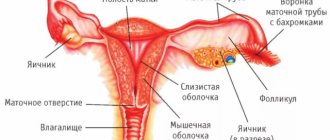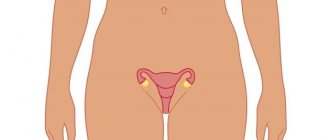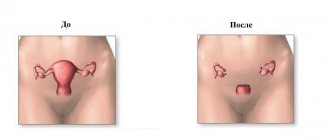After the birth of a child, lochia is secreted from the woman's genital tract for several weeks. Their number gradually decreases, which indicates wound healing after separation of the placenta. Many women are interested in the question: how long does bleeding last after a normal birth?
This is a very important factor, since it can be used to determine the degree of recovery of the body and deviations from the norm. Over time, lochia changes its composition and color. At first the woman is in the maternity hospital, but then discharged home.
If at first medical personnel monitor her condition, then in the future she must do this independently. The amount and nature of discharge indicates the state of health, so you need to notice deviations from the norm in time.
When can you start having sex?
The opinion of doctors on this issue is clear - 4-6 weeks or 40 days. During this time, the uterus should normally shrink to its natural size, and the placenta will heal. The vagina also needs time to return to normal.
You can speed up this process by doing Kegel exercises . They will help improve the tone of the vaginal walls, and will also save many women who have the problem of involuntary urination after childbirth.
But there are also exceptions. If you had tears during childbirth and received stitches, you should wait until they heal. As a rule, this period lasts up to 2 months. The discomfort in the suture area should go away completely within six months after birth.
Many mothers who have given birth via cesarean section believe that they can have sex as soon as the stitch on their stomach heals, but this is not entirely true. The uterine suture can take much longer to heal. Therefore, the recovery period for them will be from 4 to 8 weeks.
Preventive measures
In order to reduce the risk of pathological bleeding after the birth of a baby, it is important for young mothers to adhere to the following doctor’s recommendations:
- Avoid sexual intercourse with a man for several weeks to allow the uterus to fully recover and heal birth wounds.
- Regularly take clinical blood tests to monitor white blood cells in the blood, as well as hemoglobin and platelets. If any malfunctions are detected, take normalizing medications prescribed by your doctor.
- Before the birth of a child, it is very important to take blood tests for clotting. This way, the woman herself and the doctors will specifically understand what they need to be prepared for.
- It is strictly prohibited to smoke or drink alcohol during the postpartum period, especially if the woman is breastfeeding.
- Carefully observe personal hygiene of the genitals. In this case, you need to regularly change sanitary pads and wash with simple baby soap.
- For two months after the birth of the child, any physical activity, especially heavy lifting, is strictly contraindicated. During such a period, a woman needs to take maximum care of herself, especially if she had a caesarean section (stress can not only cause bleeding, but also contribute to the divergence of the stitches).
- To improve lactation, it is useful to enrich the diet with fermented milk products.
- Carefully monitor your diet. In this state, it is very useful for a woman to eat cereals, soups and vegetable dishes. At the same time, food should be cooked mainly by steaming, baking or boiling. You need to forget about fatty, smoked, salted and fried foods for a long time.
- On the first day after giving birth, be sure to apply a cold ice compress to your stomach.
- To cleanse the uterine cavity as quickly as possible, a woman is recommended to lie on her stomach.
- When you first feel the urge to urinate, you should immediately visit the toilet so that a full bladder does not lead to unnecessary contractions of the uterus.
- Spend more time outdoors. At the same time, it is very useful to practice long walks with the baby, as these actions will be useful for mother and child.
- In order to reduce the likelihood of postpartum complications, every week a woman must undergo a follow-up examination with a gynecologist. Only a specialist will be able to identify problems with the uterus in a timely manner and prescribe the necessary treatment.
It should be understood that it is important not only how long the bleeding occurs, but what nature it has, and what additional symptoms are observed in the woman. At the same time, heavy discharge of blood can be extremely dangerous to health, so you should not delay in contacting a doctor when it appears.
5 / 5 ( 1 vote)
When does postpartum discharge end and why can blood bleed during sex?
Postpartum discharge, lochia , with normal postpartum recovery should end by 6-8 weeks after birth. The fact that everything is normal in the body is indicated by a gradual decrease in discharge and a change in its color to light and transparent. During this period, sex should be avoided, because there is a high risk of infection .
Sometimes a couple can take a risk and make love when the discharge is already weak or has almost stopped. Everything went fine, but after sex there is blood , what’s the matter?
Firstly, sex can dramatically increase lochia discharge and it may well be slightly bloody.
Secondly, the vaginal walls and suture sites (if you have them) have not yet fully recovered. Friction during sexual intercourse can easily injure the delicate mucous membrane, and therefore blood appears.
Thirdly, it may be menstruation triggered by sexual intercourse. There is a small percentage of women whose periods come immediately after lochia ends.
Attention ! It's easy to confuse menstruation and uterine bleeding! Therefore, if blood appears, you should definitely visit a gynecologist.
How long does it take to bleed after childbirth?
For 2 hours, the woman and the newborn are in the maternity ward. At this time, normal discharge is quite copious and bloody, but its total amount should not exceed 400 ml. To prevent complications such as bleeding, they can drain urine through a catheter, put ice on the stomach, and administer drugs intravenously to speed up uterine contractions.
These few hours are the most dangerous, because the muscles of the uterus are relaxed and contractions may not occur, and the onset of blood loss may not manifest itself in anything other than dizziness and weakness. So if these symptoms appear and the sheet/diaper gets wet quickly, you should urgently call a nurse.
Complications can also arise from ruptures of the tissues of the birth canal, so the obstetrician carefully examines the vagina and cervix, and if their integrity is damaged, take the necessary measures, that is, suturing the wounds. If the tear is not sutured completely, a hematoma may form, which is subsequently opened and re-sutured.
How long does bleeding last after childbirth?
The recovery process is successful if in the first 2-3 days the lochia is bloody in nature and quite abundant (up to 300 ml in 3 days). At this time, the gasket should fill completely in just 1-2 hours.
Lochia may have blood clots after childbirth, a musty odor similar to menstrual odor. Gradually their number decreases, and they acquire a brownish-red hue, intensifying with movement. They also appear on palpation of the abdomen.
To prevent bleeding, you must follow certain rules:
- Go to the toilet immediately when you have the urge to urinate. During the first 24 hours, you need to visit the restroom at least every 3 hours. An overfilled bladder interferes with the contraction process;
- Attach the baby to the breast at his first request. The fact is that when the nipples are irritated, oxytocin is released, the hormone responsible for contractions. Blood leaking after childbirth may increase during breastfeeding and be accompanied by cramping pain in the lower abdomen;
- Sleep and rest lying on your stomach. This position promotes the release of blood clots. The uterus may tilt posteriorly, but lying on your stomach will bring it closer to the abdominal wall. This way the outflow will improve;
- Place ice on your stomach several times a day, which will improve the condition of blood vessels and speed up contractions.
When the uterus is overstretched and labor is complicated, oxytocin injections are prescribed to stimulate contractions.
It is worth noting that an increase in the amount of discharge should be a reason to consult a doctor, because it may indicate late bleeding. This phenomenon can occur not only in the first days, but also several weeks after birth. So even at home you need to pay attention to how much fluid is released.
Late bleeding is usually caused by a stuck piece of placenta. Sometimes it is not diagnosed immediately after birth, then it leads to complications that can be detected during a vaginal examination or ultrasound. If the diagnosis is confirmed, the remains are removed under general anesthesia. At the same time, infusion and antibacterial therapy are carried out.
Sometimes this phenomenon occurs due to a blood clotting disorder, which can be caused by various diseases. Stopping such blood loss is the most difficult thing.
Most often, complications arise due to insufficient contraction of the uterine muscles. Bleeding after childbirth in this case is also painless, but very profuse. To stop it, reducing agents are administered, and blood loss is also replaced with intravenous fluids or blood products. If necessary, resort to surgical intervention.
Early cessation of lochia is also a reason to visit a doctor. Perhaps there is lochiometra - an accumulation of secretions in the uterine cavity. This pathology occurs when the organ is overstretched or bent backwards.
If this condition is not eliminated in time, endometritis will appear - inflammation of the uterine mucosa, because lochia is a good breeding ground for microbes. Treatment mainly consists of taking Oxytocin and No-shpa.
“Why does it hurt so much?”
This expression perfectly conveys a woman’s feelings from the first sex after childbirth. Many compare this moment with the loss of virginity, both in terms of pain and psychological state.
Pain occurs for several reasons, the first being stitches. In places where there was a seam, the tissue scars and becomes denser and less extensible. During sexual intercourse, the vagina is stretched under pressure, and the woman experiences discomfort and pain.
Secondly, psychosomatics. Mommy is tired and exhausted, she is tormented by the fear that it will hurt, the fear of not being desired by her husband, the fear that the child will wake up and much, much more. She resists the intrusion and cannot relax. This causes discomfort and even pain
Thirdly, lack of lubrication . During lactation, the amount of natural lubrication is reduced and it becomes thicker. This causes a lot of trouble during sex.
What to do to avoid these troubles?
- Use ointments to soften sutures ; your gynecologist will prescribe them for you;
- Use lubricants or birth control pills that provide additional lubrication (suppositories or pills);
- Perform erotic massages that promote relaxation and relieve spasms of the vaginal muscles;
- Increase the duration of foreplay so that a tired mommy can warm up and begin to experience pleasure from sex ;
- Choose the right poses in which the woman controls the depth and angle of entry.
Can't or don't want to?
One of the main problems of a woman after childbirth is a drop in libido . This is a natural process, because hormonal levels change, especially in women who are breastfed. The desire may simply not exist. Plus, to the natural drop in libido is added fatigue, lack of sleep, irritability, dissatisfaction with one’s appearance and new position.
Many husbands do not understand this and add fuel to the fire by saying that the missus looks bad, or by being indignant at the fact that yesterday’s borscht was for breakfast and the shirt was not ironed. There is no time for sexuality when there is a child in one hand, a vacuum cleaner in the other, and a bun on the head, tied with the first elastic band that comes along.
Often women not so much don’t want sex themselves as they can’t because of fatigue and accumulated unrealized aggression. There are also those who subconsciously punish their husband for his disrespectful attitude.
There is only one way to deal with this - unload your mother. Give her time to take a shower, drink tea, and go to a manicure or hairdresser once a week. She needs a place where she can feel like a woman , beautiful and well-groomed.
Why is blood released: normal
According to gynecologists and obstetricians, after the birth of a child, small amounts of blood can be released for up to four weeks in a row. If the woman’s condition is satisfactory, she does not suffer from pain, high temperature and other dangerous signs, then this process is regarded as a physiological norm.
Gradually, the uterus will clear itself of postpartum injuries and restore its mucous layer.
Important! After a caesarean section, the woman’s recovery process takes longer, since the muscles and walls of the uterus are injured by surgery. In this condition, the healing period of the organ will be longer.
The pleasures of postpartum sex
Every phenomenon has two sides: positive and negative. They talk about negativity everywhere, so let's talk about the advantages of sex after childbirth .
New erogenous zones . Hormonal levels change, a woman blossoms after childbirth. The old erogenous zones may no longer please so much, or may not excite at all, check, maybe now the ankles have become sensitive, and not the earlobes? A man has a great opportunity to meet his beloved again.
Orgasm . Most women who have given birth claim that the orgasm after childbirth is much more powerful and brighter than the prenatal one. Moreover, those who did not experience orgasm before childbirth have every chance of experiencing it.
New body . In addition to changes for the worse, such as stretch marks or cellulite, a woman’s body after childbirth becomes softer and more feminine, her breasts become larger, her hips have not yet fully aligned, and you become like an ancient Greek goddess. Let your partner enjoy your beauty and femininity, love your new self.
Abstinence . Now you will not be able to have sex as much as you want and whenever you want, because the child will adjust the schedule of your life. Use this time for hints and teasing, so that by nightfall, when the baby is sleeping, you and your loved one are burning with the desire to possess each other.
Do I need to protect myself?
After the period when you conceived a child, and pregnancy, when there was no need for protection, many people relax and stop monitoring safety. And they can pay for this by finding themselves pregnant 4-6 months after giving birth.
The myth that you won’t get pregnant while you breastfeed is quite common. This is wrong. Once a woman's menstruation resumes, she can become pregnant again.
This is dangerous because the orgasm is worn out by previous births and it takes from a year to 3 years in some cases to recover.
How to protect yourself?
The calendar method or interrupted sexual intercourse is not suitable for you; it is best if a gynecologist prescribes contraception.
Reliable contraceptive methods for you will be:
- Barrier method (condoms and caps);
- spermicides (suppositories, tablets, creams);
- hormonal contraceptives (if you are a nursing mother, check with your gynecologist which ones are allowed for you);
- intrauterine device.
Blood after childbirth at home
So how much does one bleed after childbirth? The average time is 6-8 weeks. This is exactly the period required for the uterus to develop back after pregnancy and childbirth. The total amount of lochia ranges from 500 to 1500 ml.
In the first week, they can be compared to normal menstruation, only more abundant and with clots. With each subsequent day, their volume will decrease and their color will approach yellowish-white. By the end of 4 weeks they are very scanty, one might say spotty, and after another 14 days they should become the same as before pregnancy.
For those who breastfeed, they end earlier, since the uterus contracts much faster. But for women who have had a caesarean section, recovery is slower because the stitch interferes with the normal reverse process, and bleeding takes longer than usual.
Reviews from women
Ksyusha : “My husband and I barely survived a month and a half. At first, I also felt a little pain, right in the place where they were sewing, and besides, we tried it with a condom, but after several “trainings” and without a condom everything went like clockwork”;
Dasha : “It all depends on the body, my husband and I quietly tried it a month later, and everything was fine. There were 4 stitches inside, but first I went to the gynecologist, she said that everything was fine, the uterus had shrunk, and told me to do exercises for the vaginal walls.”
Marina : “my child was 3600, they cut it, small internal tears, it healed quickly, first sex after 5 weeks, after 8 weeks - complete harmony, everything is the same as it was, or even better. My husband is happy, but I couldn’t be happier: the sensations are brighter, the desire is more frequent, the orgasms are incredible!”
Family psychologists say that it is with the improvement of sexual life that young parents begin a new period of relationships. And for those who have sex regularly and with pleasure, the number of conflicts in the family is noticeably reduced and cases of postpartum depression are less common. So take care of yourself and your family, love yourself and allow yourself to be loved!










